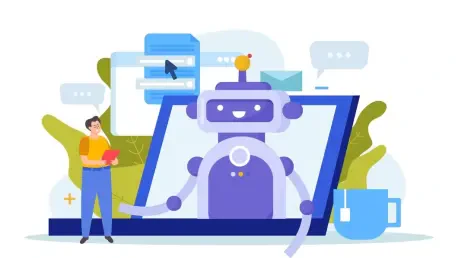In today’s fast-paced business environment, imagine a decision-maker tasked with selecting a critical software solution under tight deadlines, juggling multiple responsibilities, and facing an overwhelming flood of information while striving to make informed choices quickly. The pressure to decide efficiently has never been greater, and a revolutionary tool is stepping in to redefine this process: AI chatbots. These intelligent systems are not just supplementary aids but are becoming central to how B2B software buyers research, evaluate, and decide on solutions. This shift signals a profound transformation in the industry, driven by the need for speed and precision, and it raises critical questions about how businesses adapt to remain visible and relevant in this new landscape.
Understanding the B2B Software Buying Landscape
The B2B software market stands as a cornerstone of modern business operations, enabling companies to streamline processes, enhance productivity, and maintain competitive edges. From customer relationship management systems to enterprise resource planning tools, software solutions underpin nearly every facet of organizational strategy. Decision-makers across various sectors rely on these technologies to address complex challenges, making the buying process a high-stakes endeavor that demands thorough research and careful consideration.
This market is broadly segmented into enterprise buyers, who often seek scalable solutions for large organizations, and small-to-medium business buyers, who prioritize cost-effective and flexible tools. Technology plays a pivotal role in shaping purchasing behavior, with digital platforms and data-driven insights guiding decisions more than ever. Major players like Salesforce, Microsoft, and Oracle dominate the space, setting benchmarks for innovation and functionality, while industry standards such as ISO certifications and compliance with data protection regulations like GDPR influence buyer expectations and trust.
The Rise of AI Chat in B2B Software Research
Shifting from Search Engines to Answer Engines
A significant trend reshaping B2B software research is the migration from traditional search engines like Google to AI-powered answer engines. Tools such as ChatGPT and Perplexity are increasingly becoming the starting point for buyers seeking quick, relevant information. Unlike conventional search methods that require sifting through countless links, these chatbots deliver concise, tailored responses, aligning with the modern buyer’s demand for efficiency in a time-constrained environment.
This behavioral shift is fueled by emerging technologies that leverage natural language processing to understand complex queries and provide actionable insights instantly. Buyers now experience a streamlined research phase, often bypassing multiple steps of the traditional funnel. The opportunity for faster decision-making is clear, as AI chatbots reduce the hours spent on manual data compilation, allowing professionals to focus on strategic evaluation rather than exhaustive searches.
Data and Growth of AI Adoption
Survey data underscores the rapid adoption of AI chatbots among B2B software buyers, with 87% of respondents recognizing their transformative impact on research methods. Over the past few months, there has been a striking 71% increase in buyers initiating their software discovery with AI tools, highlighting a profound change in approach. This trend reflects a broader acceptance of digital assistants as indispensable resources in navigating the complex software market.
Among the array of available tools, ChatGPT emerges as the dominant choice, preferred by 47% of buyers, outpacing competitors like Gemini and Claude. Projections indicate that reliance on AI will only intensify, particularly in enterprise environments where resource constraints amplify the need for efficient research methods. As workloads grow, the adoption of these technologies is expected to expand further, cementing their role in corporate decision-making processes.
Challenges in Adapting to AI-Driven Buying Trends
The integration of AI chat into B2B buying journeys presents notable challenges for businesses accustomed to traditional marketing channels. Search engine marketing, once a cornerstone of digital visibility, is losing effectiveness as buyers turn to answer engines for initial research. Companies heavily invested in SEM strategies find their reach diminished, necessitating a pivot to alternative approaches to capture buyer attention in this evolving space.
To counter these hurdles, investment in Answer Engine Optimization (AEO) emerges as a viable solution. This strategy focuses on ensuring content is optimized for AI chat responses, enhancing discoverability in a landscape where direct answers trump ranked listings. Adapting marketing tactics to prioritize conversational queries and structured data can help maintain competitiveness, though it requires a significant shift in resource allocation and skill development.
Moreover, the rapid pace of AI adoption demands agility from organizations. Staying ahead involves not only embracing new tools but also rethinking how to position products within the condensed buying cycles that AI facilitates. Businesses must explore partnerships with AI platforms and integrate their offerings into chatbot ecosystems to avoid being sidelined by this technological wave.
Navigating Trust and Credibility in AI-Influenced Buying
As AI chatbots gain prominence, trust in these tools as credible research sources is growing remarkably, often surpassing the reliability attributed to vendor websites and direct sales interactions. Buyers perceive AI responses as unbiased and comprehensive, valuing the ability to access synthesized information without the overt influence of marketing narratives. This shift in perception reshapes how credibility is established in the buying journey.
However, building and maintaining trust in an AI-driven context requires adherence to stringent data security standards. With concerns over privacy and data breaches ever-present, compliance with regulations ensures that buyer confidence is not undermined. Businesses must prioritize transparency in how data is handled within AI interactions to foster a sense of safety among users relying on these platforms for critical decisions.
Additionally, a robust presence across multiple touchpoints is essential for credibility. Strong branding on AI platforms, positive feedback on review sites, and authoritative content on owned channels collectively reinforce trust. Companies that strategically align their messaging and visibility across these avenues are better positioned to influence buyer perceptions and sustain long-term relationships in an increasingly digital marketplace.
Future Outlook for AI Chat in B2B Software Buying
Looking ahead, the sustained adoption of AI chatbots promises to further redefine B2B software buying dynamics. Emerging tools with enhanced capabilities, such as advanced personalization and predictive analytics, are poised to deepen the impact of AI on decision-making. Potential market disruptors, including niche AI solutions tailored for specific industries, could challenge established players and introduce new competitive pressures.
Shifting buyer expectations will likely center on even greater efficiency and customization, pushing vendors to innovate continuously. Economic conditions, such as budget constraints or inflationary trends, may accelerate reliance on AI for cost-effective research, while the growing importance of AEO will redefine marketing priorities. Strategic visibility in AI search results will become a non-negotiable aspect of go-to-market planning for forward-thinking firms.
The long-term implications also point to a more integrated buying experience, where AI chatbots seamlessly connect with other digital ecosystems like review platforms and vendor portals. This convergence could streamline the entire purchase process, from discovery to final selection, while raising the bar for user experience. Businesses that anticipate and adapt to these trends will likely gain a significant edge in capturing market share over the coming years.
Conclusion and Strategic Recommendations
Reflecting on the insights gathered, it becomes evident that AI chatbots have fundamentally altered the B2B software buying journey by compressing research timelines and redefining how information is accessed. This transformation has challenged conventional marketing paradigms and introduced a new era of efficiency that reshapes buyer behavior across enterprise and smaller business segments alike.
Moving forward, businesses are encouraged to take proactive steps by prioritizing Answer Engine Optimization as a core component of their digital strategy. Monitoring performance in AI search results offers a pathway to maintain visibility, while building integrated go-to-market approaches that span AI platforms, review sites, and direct channels ensures a comprehensive presence. These actions position companies to not only adapt to current shifts but also anticipate future innovations in the ever-evolving landscape of B2B software procurement.









